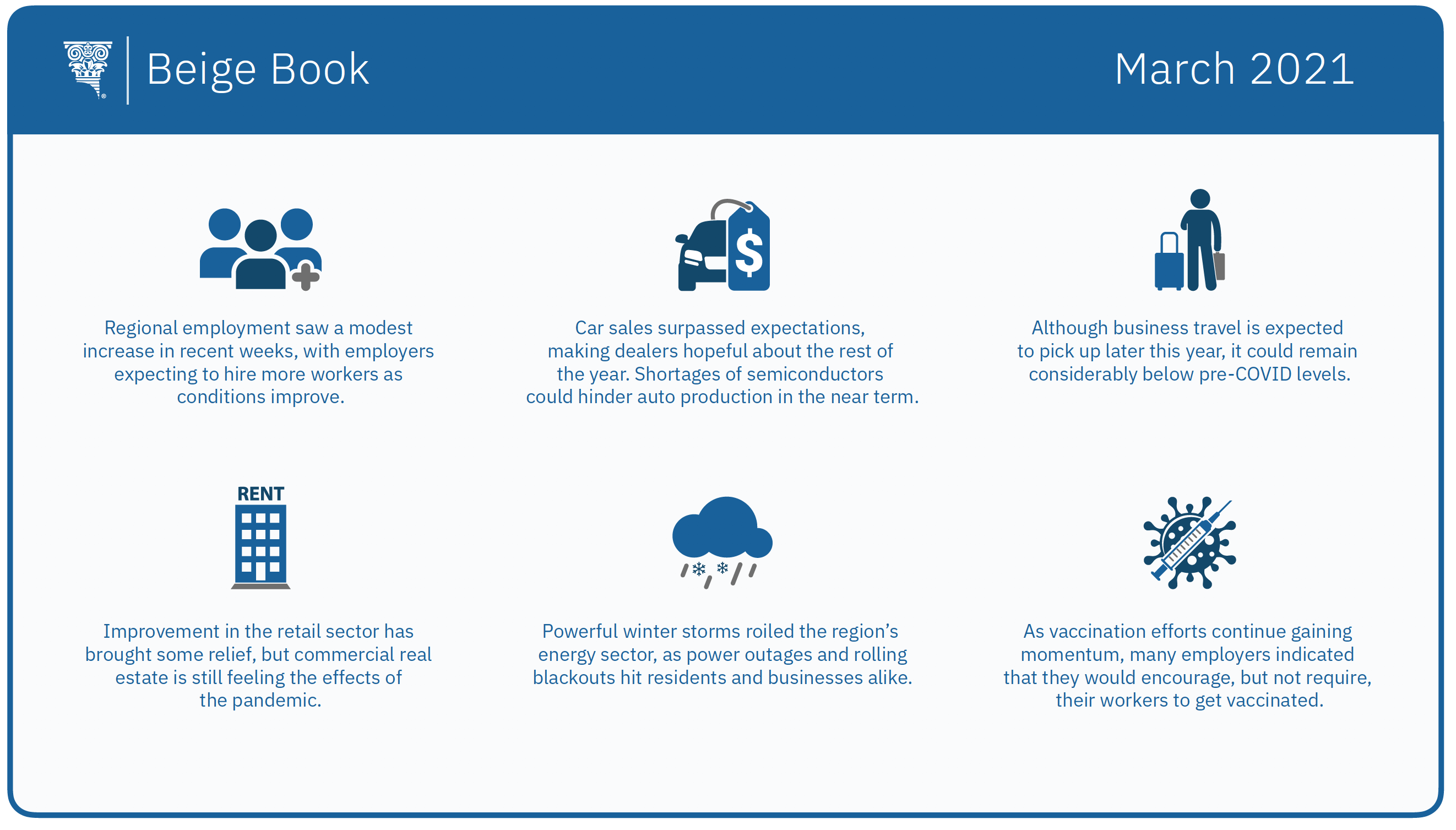
The latest Beige Book report on the regional economy from the Federal Reserve Bank of Atlanta shows hopeful signs in the labor market, a bit of upward pressure on prices, and a modest expansion of general activity over the past several weeks.
February’s Beige Book reports that employment levels rose “modestly” from December and early January, and about half of contacts expect to add workers as business improves. At the same time, most contacts said their staffing was still at or below prepandemic levels.
Firms that are hiring said most jobs were easy to fill, other than lower-wage positions, nursing jobs, and long-haul drivers’ jobs. Several business contacts told the Atlanta Fed Regional Economic Information Network staff that having employees work from home has made it easier to fill higher-skilled positions.
On the vaccine front, many firms reported they will encourage but not require workers to get inoculated. Some contacts were offering paid time off to get the shot or were considering administering them onsite.
As certain input costs, especially lumber and steel, continued to rise, firms’ ability to pass those increases along to customers varied. Sectors most affected by higher costs—such as construction, manufacturing, and transportation—raised prices while others were unable or unwilling to do so. In a broad reading, the Atlanta Fed’s Business Inflation Expectations survey showed unit costs increased notably over the past year, to 2.1 percent in February, up from 1.8 percent in January. Expectations for inflation a year from now remained relatively unchanged at 2.2 percent.

Regarding consumer spending, auto sales exceeded expectations, and dealers were optimistic about the rest of 2021. However, auto industry suppliers noted that shortages of semiconductors could hinder future production. As has been widely documented, travel and tourism have suffered deeply from the pandemic. In the February Beige Book, contacts reported only a “slight uptick in activity” from the previous report. Contacts expect leisure travel to start returning to normal in late summer, and they anticipate that business travel will rebound in the fourth quarter of 2021 but remain well below prepandemic levels.
Commercial real estate contacts reported some improvement, even though the industry continued to battle effects of the pandemic. For instance, conditions in the retail sector strengthened, and rent collections recovered from the dismal results of mid-2020.
In other economic sectors:
- Manufacturing firms reported stronger business and an optimistic outlook. Two-thirds of contacts said they expect higher production over the next six months.
- In transportation, port contacts noted record container volumes amid surges in imports and increased exports. Trucking firms continued to benefit from strong demand for consumer staples but faced ongoing driver shortages despite rising wages.
- At financial institutions, net interest margins stabilized, and earnings improved slightly because of lower provisions for credit losses. Meanwhile, loan growth declined due to tepid demand, especially from commercial customers.
- The energy sector dealt with winter storms in mid-February. Residents and businesses grappled with power outages and rolling blackouts, while refineries, chemical manufacturers, and liquified natural gas producers in Southwest Louisiana were forced to halt production. Fuel carriers reported a severe backlog of deliveries as hazardous road conditions, power outages, and terminal shutdowns caused congestion and delays.
- Agricultural conditions remained mixed, as unusually dry conditions prevailed across much of the Southeast.
The Fed issues the Beige Book before each meeting of its policy-setting Federal Open Market Committee. The next meeting is scheduled for March 16 and 17.




